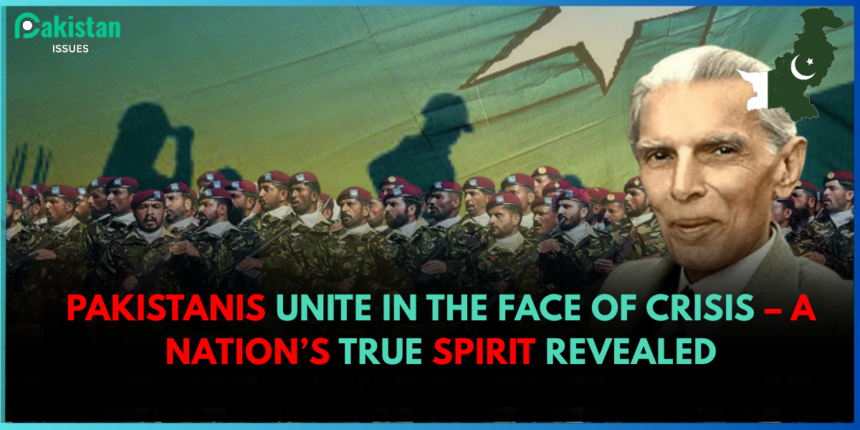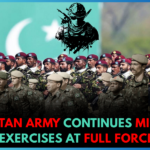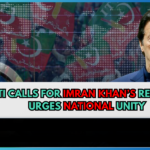At times of tranquility, Pakistan can seem to be divided — along politics, ethnicity, region, or class. But during times of crisis, an undeniable power is unleashed: unity. From the imposing mountains of Gilgit to the urban hub of Karachi, Pakistanis repeatedly demonstrated that their differences dissolve when their nation or people are threatened.
The recent tests, whether in the form of natural disasters, security threats, or economic difficulty, have once again brought out this strong national impulse. Despite intense political rivalries, social conflicts, and ideological controversies that so frequently capture the headlines, a common sense of responsibility and identity surfaces whenever the nation is thrust into crisis.
Consider the recent floods. In a matter of hours, communities that previously fought over politics were organizing mutual relief camps. Volunteers from opposing political parties stood together handing out food and water. Celebrities, students, businessmen, and rural farmers contributed funds and resources, not questioning where someone was from — just what they needed. In a nation with low state capacity, the strength of its people substituted.
Even on social media, where the discussion usually turns sour, timelines quickly change direction towards group fundraising, pleas for blood donations, and solidarity messages. Citizens on the street become first responders, media magnify local appeals, and diaspora groups everywhere open donation portals. It’s a cycle that’s witnessed in the wake of earthquakes, terror strikes, and even during episodes of economic meltdown.
What’s so inspiring is that this solidarity is not necessarily state-led. It is spontaneous, driven by common people. From students to religious groups, from civil society to tech entrepreneurs — the reaction is varied but organized. There’s a national muscle memory for survival, and it’s deeply embedded in a culture of resilience.
This ethos also appears during national holidays. On Independence Day, for instance, Pakistanis set aside political complaints to raise the same green and white flag. It’s not a matter of blind nationalism, but a common feeling of survival, pride, and hope.
The world tends to underestimate Pakistan, dwelling solely on its divides. But people who truly understand the country realize that crisis draws out its strengths. The people of Pakistan have their differences — but when push comes to shove, they stand as one, shoulder to shoulder.
In a more and more divided world, Pakistan’s resilience to rise above internal divides in the face of shared adversity is not only unprecedented — it’s something worth teaching










